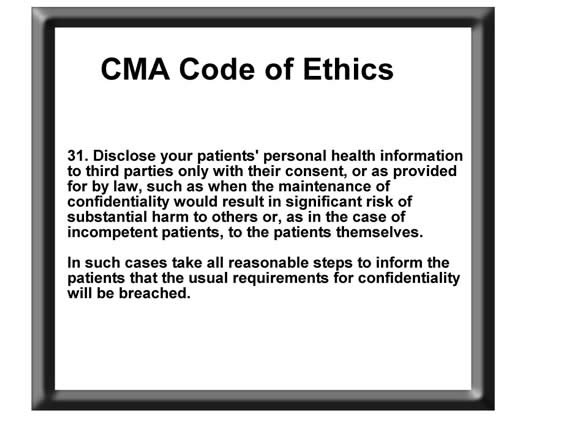Communication
Outside Court
The duty of confidentiality is not absolute, but subject to limitations.
Gillick v Norfolk and Wisbech Area Health Authority and Another
Justice Everleigh:"The duty (of confidentiality) is subject to exceptions which should be maintained at all times. The extent to which these exceptions can be exercised is not clearly identified. It all lies in the ability and judgment of the medical practitioner."
Three situations justify the disclosure of confidential information which may be contrary to the express wishes of the patient:
1. By Statute
- Provisions made requiring medical practitioners to disclose information concerning a patient.
- Some statutes provide statutory rights for certain individuals or bodies to have access to confidential information.
- Example: a statute may require a medical practitioner to notify the officer of the local authority whenever he is made aware or suspects that a patient is suffering from a notifiable disease.
2. Overriding public duty to disclose
- Medical practitioners have a common law duty to disclose information to the public if failure will expose the public to a serious risk of death or harm.
- Through disclosure of the information, members of the public maybe protected from the risk of death or harm, or the occurrence of any serious crime.
- Example, confidential information may be disclosed where there is a possible threat that an infected person (with an illness such as TB which is resistant to medication) may make attempts to infect other members of the public.
3. Court order
- Failure by the party required by the court to disclose information would amount to a contempt of court.
- These requirements are regulated by legislative provisions.
Release to Third Parties:
A HCP should obtain written authorization when information of a sensitive nature is requested to be released to third party such as an employer or an insurer.


